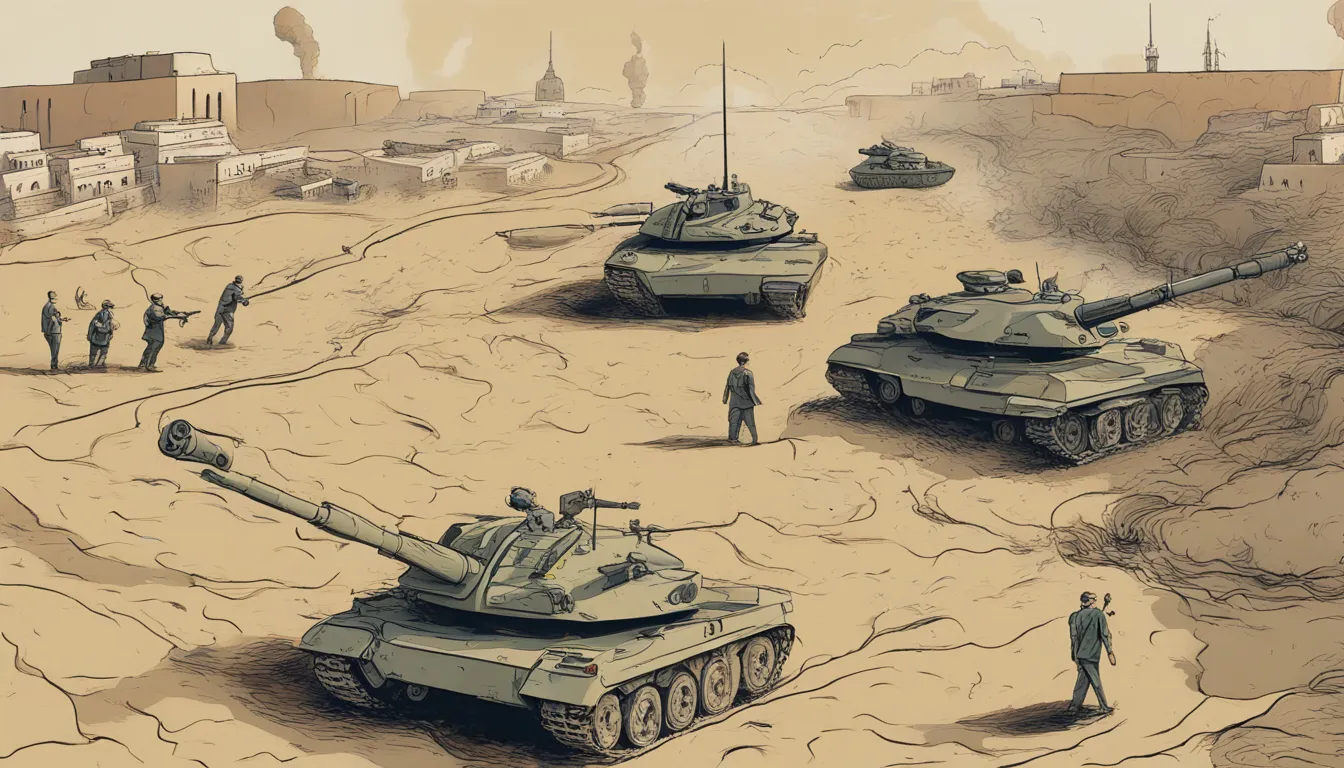As tensions escalate between Iran and Israel, the specter of a wider conflict looms ominously over the Middle East
While the immediate focus is on the exchange of hostilities between these two regional adversaries, there are unsettling parallels between the current situation and the events that precipitated World War I. Just as the assassination of Archduke Franz Ferdinand set off a chain reaction leading to global conflict, the recent drone and missile attacks by Iran on Israel's soil could serve as the catalyst for a potential World War III.
At the heart of the Iran-Israel conflict lies a complex web of geopolitical rivalries and alliances, mirroring the entangled alliances that characterized the prelude to World War I. Iran's support for proxy groups like Hezbollah and its regional ambitions clash with Israel's security concerns and its close ties with the United States. This volatile mix of competing interests has created a tinderbox scenario where a single spark could ignite a broader conflagration.
The conflict between Israel and Iran escalated following an airstrike on Iran's diplomatic complex in Syria, resulting in the death of several high-ranking Iranian officials. This event intensified longstanding tensions between the two nations, exacerbated by Israel's ongoing war with Hamas since October 7, 2023. Iran's leadership vowed retaliation, raising fears of a broader regional conflict. Both the US and Israel issued warnings of imminent Iranian attacks, heightening tensions in the region.
The recent drone and missile attacks by Iran on Israeli territory echo the assassination of Archduke Franz Ferdinand in Sarajevo—an event that set off a chain of events leading to the outbreak of World War I
Just as Austria-Hungary's declaration of war on Serbia drew in a cascade of alliances, Iran's actions risk drawing in its allies and adversaries alike. The potential involvement of countries like the United States, Russia, and regional powers such as Saudi Arabia and Jordan raises the stakes significantly.
Moreover, similar to the trench warfare and attritional battles of World War I, the conflict between Iran and Israel has the potential to devolve into a prolonged and bloody struggle
The entrenched positions of both sides, coupled with the asymmetrical nature of modern warfare, could lead to a protracted conflict with devastating consequences for the region and beyond. The use of advanced military technologies, including drones and ballistic missiles, further escalates the risk of escalation and miscalculation.
The Iran-Israel conflict also shares parallels with the Eastern Front of World War I
The Iran-Israel conflict also shares parallels with the Eastern Front of World War I, where Russia's entry into the war shifted the dynamics and prolonged the conflict. Iran's involvement in the conflict, particularly its support for proxy groups across the region, has the potential to draw in other major powers and transform the conflict into a broader regional war. The recent attacks on Israeli soil, coupled with Iran's assertive stance and defiance of international norms, have raised concerns about the possibility of a wider conflict engulfing the Middle East.
The consequences of a potential World War III sparked by the Iran-Israel conflict would be catastrophic
The destabilization of the Middle East, disruption of global energy supplies, and the risk of nuclear proliferation are just some of the dire outcomes that could result from such a conflict. Moreover, the interconnected nature of the modern world means that the reverberations of such a conflict would be felt far beyond the borders of the Middle East, potentially plunging the entire world into a new era of uncertainty and chaos.
While the Iran-Israel conflict may seem like a localized dispute, its potential to escalate into a wider conflict with global ramifications cannot be ignored. The parallels with the events that led to World War I serve as a stark reminder of the dangers of regional conflicts spiraling out of control. As tensions continue to escalate, it is imperative for the international community to work towards de-escalation and diplomatic resolution to prevent the nightmare scenario of World War III from becoming a reality.
The echoes of past conflicts often reverberate into the present
As history has shown time and again, the echoes of past conflicts often reverberate into the present, and the Iran-Israel tension is no exception. If left unchecked, this geopolitical rivalry has the potential to morph into a religiously charged holy war, further complicating an already volatile situation. However, it's crucial to recognize that the path to peace is still within reach. By learning from the lessons of history and prioritizing diplomacy and dialogue over aggression, the international community can work towards a future where conflict is averted, and the specter of a holy war remains a distant fear rather than a grim reality.

